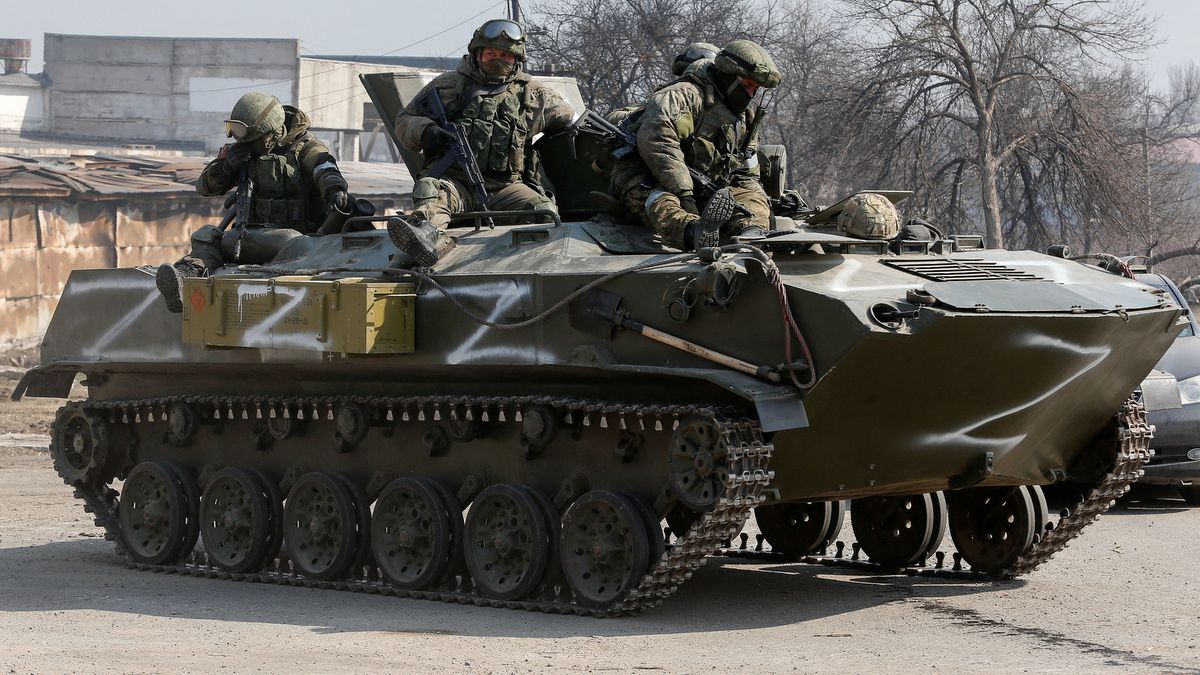Ukrainian negotiators said they proposed a status under which their country would not join alliances or host foreign troop bases, but would have its security guaranteed in terms similar to “Article 5,” the collective defense clause of the NATO.
In this context, they identified Israel and NATO members Canada, Poland and Turkey as countries that could help provide such guarantees.
The proposals would include a 15-year consultation period on the status of crimea – annexed to Russia – and could only come into effect in the event of a full ceasefire, Ukrainian negotiators told reporters in Istanbul.
Russian Deputy Defense Minister Alexander Fomin said that Russia had decided to reduce the fighting near kyiv and Chernigov to create the necessary conditions for dialogue.
Although shortly after, the main Russian negotiator, Vladimir Medinski, clarified that the reduction of military operations “does not mean a ceasefire”.
In parallel, in an interview granted to the Russian network RT, collected by the Interfax news agency, Medinski said that the delegation considers Ukraine’s proposals as “a step forward.”
“Russia took two big steps towards peace,” he said, before indicating that Moscow “waits for a response from Ukraine.” “We consider her first written proposals as a step towards us, a positive development,” she stressed.
The first step he refers to is a “slowing down or reduction” in the intensity of the conflict in the two cities mentioned. The second is related to the possibility of a meeting between the Russian and Ukrainian presidents, Vladimir Putin and Volodymyr Zelenskyat the time of signing the peace, in the words of the Russian negotiator.
The talks held in Istanbul on Tuesday were the first face-to-face meeting between the parties since March 10. Russia launched its invasion of Ukraine on February 24, and has failed to capture any of its neighbor’s major cities after encountering fierce resistance.
Ukraine’s proposals were the most detailed and concrete that kyiv has made public.
“If we manage to consolidate these key provisions, and for us this is the most fundamental, then Ukraine will be in a position to fix its current status as a State without bloc and without nuclear weapons, in the form of permanent neutrality“, said the Ukrainian negotiator Oleksander Chaly.
“We will not host foreign military bases on our territory nor will we deploy military contingents on our territory, and we will not enter into political-military alliances,” he said. The military maneuvers would take place with the consent of the guarantor countries.
The United States, for its part, reacted skeptically to the initial agreement between Russia and Ukraine.
“There is what Russia says and there is what Russia does. We are going to focus on the latter”, considered the Secretary of State, Anthony Blinkenduring a joint press conference in Rabat with the Moroccan Foreign Minister, Nasser Burita.
He warned that behind Russian commitments to reduce its military operations in areas such as kyiv, a new attempt at “deception” could be hidden. For this reason, he urged Moscow to “end the aggression now, stop firing, withdraw its forces and, of course, engage in dialogue.”
Instead, Blinken praised the strength and willingness of Ukraine, which was not only able to hold out after the invasion but has sat down to negotiate “literally with a gun over their heads.”
Source: Ambito
David William is a talented author who has made a name for himself in the world of writing. He is a professional author who writes on a wide range of topics, from general interest to opinion news. David is currently working as a writer at 24 hours worlds where he brings his unique perspective and in-depth research to his articles, making them both informative and engaging.




